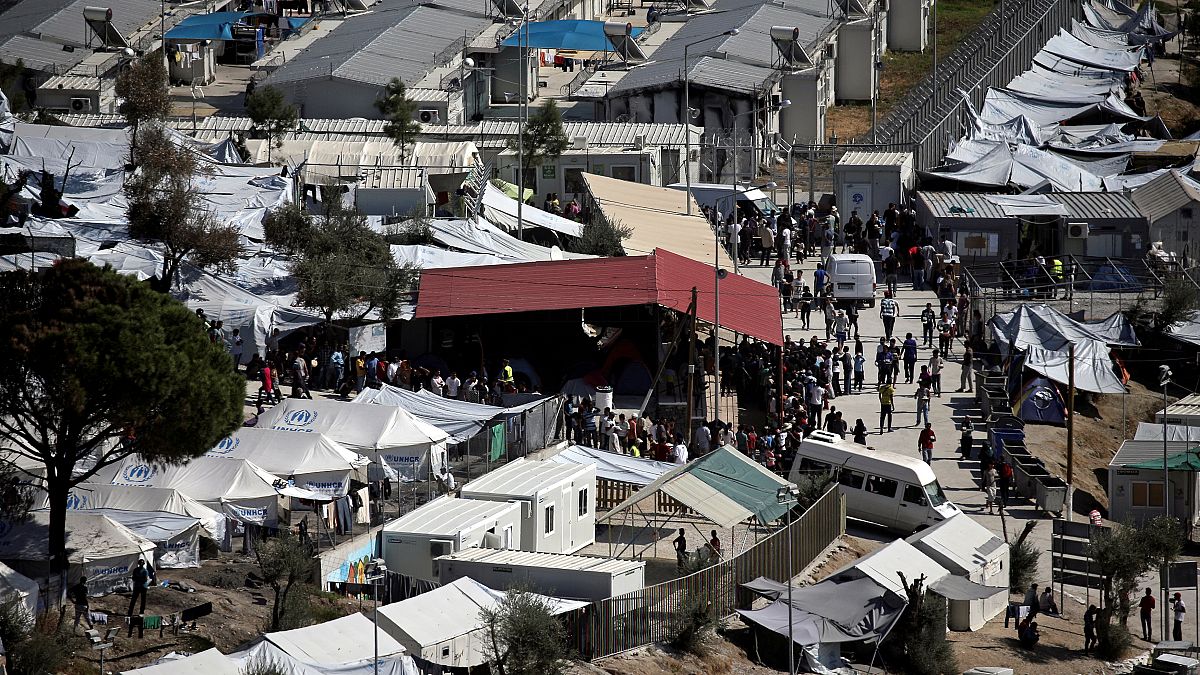More than 9,000 people live in the Moria camp — three times its official capacity.
Europe's largest migrant camp risks descending into "extreme chaos" if authorities do not address the severe overcrowded conditions and a crippling rise in serious mental health problems, Doctors Without Borders have warned.
"Considering the outright violation of human rights and the grave medical and psychiatric needs we face every day, it is clear that Moria camp is in a state of emergency," Alessandro Barberio, a clinical psychiatrist for Doctors Without Borders in Lesbos, wrote in an open letter.
"I firmly believe that the current situation could drastically deteriorate even within the coming weeks, with an escalation of violence that would plunge the island into extreme chaos," he added.
The Greek island of Lesbos, located in the Aegean Sea near the shores of Turkey, has been a popular landing point for people fleeing war and violence across the Middle East and Africa since the migrant and refugee crisis began in 2015. From there, they hoped to make it onto mainland Europe.
Now, more than 9,000 people are living in the camp — three times its official capacity of 3,100. A third of them are children.
"We need help right now"
Aid groups have highlighted the risks such overcrowding poses: a rapid spread of infectious diseases as well as escalating violence as different communities, pushed past breaking point, fight for limited space and access to facilities.
In its latest statement, the medical aid group also raised the alarm on the impact the camp's living conditions have on its inhabitants' mental health.
"In all of my years of medical practice, I have never witnessed such overwhelming numbers of people suffering from serious mental health conditions as I am witnessing now amongst refugees on the island of Lesbos," Barberio wrote.
Children are particularly affected. The organisation, which conducted a months-long group mental health activity for children from 6 to 18-years-old, found that nearly a quarter of children (18 out of 74) had harmed themselves, attempted suicide or had suicidal thoughts.
It also observed that other children suffered from elective mutism, panic attacks, anxiety, aggressive outburts and constant nightmares.
"These children come from countries in war, where they have experienced very extreme violence and trauma," Declan Barry, medical coordinator in Greece for Doctors Without Borders, said in a statement released earlier this week.
"Rather than receiving care and protection in Europe, they are instead subjected to ongoing fear, stress, and episodes of further violence, including sexual violence," he added.
Marzia, who arrived in Moria over five months ago, told Euronews' Fay Doulgkeri that her husband now suffers from mental health issues while her two sons have started to display aggressive behaviours.
"We are worried because the winter is coming and we have our children in a small tent. We have no blankets at all. They're coughing and they get sick. And when we go to the doctor, they don't pay any attention. They just say drink water. We need help right now," she told Euronews.
'Dangerous' conditions
Doctors Without Borders have called on authorities, including the European Union, to urgently address the crisis in Moria and evacuate the most vulnerable to safe accommodation in other European countries.
Public health inspectors declared earlier this month that Moria is "dangerous for public health and the environment." The inspectors highlighted overflowing garbage bins and broken sewage pipes as some of the issues.
Regional governor, Chrisinana Kalogirou, subsequently threatened to shut down the camp next month if Greek authorities did not provide more assistance to limit overcrowding.
The country's migration ministry said it will move 2,000 asylum-seekers to the mainland by the end of September.
